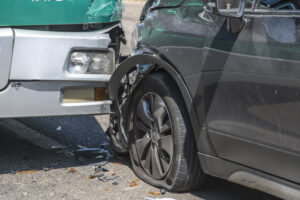McPherson County, Kansas, is a picturesque region known for its serene landscapes and vibrant communities. However, the tranquility of this area can be disrupted when unforeseen events, such as bus accidents, occur. These incidents not only pose a threat to the safety of passengers but also raise complex legal questions regarding liability, especially when adverse weather conditions come into play. In this article, we will delve into how weather conditions can impact liability in bus accidents in McPherson County and explore the legal requirements associated with such cases.
Weather Conditions and Bus Accidents
Kansas is no stranger to diverse weather conditions throughout the year, ranging from harsh winters to scorching summers. These weather variations can significantly affect road conditions and, consequently, the likelihood of accidents. When it comes to bus accidents, the impact of weather conditions on liability is a crucial aspect that legal professionals must carefully consider.
Winter Hazards
In McPherson County, winters can bring icy roads and heavy snowfall. Bus operators must exercise extreme caution during these conditions to ensure the safety of passengers. If a bus accident occurs due to negligence in adapting to winter weather, determining liability becomes a nuanced process. Legal proceedings will assess whether the bus operator took reasonable precautions and followed established safety protocols.
Summer Challenges
Conversely, the scorching heat of Kansas summers can present its own set of challenges. High temperatures can affect road surfaces, tire traction, and even the mechanical components of a bus. If an accident occurs in such conditions, investigators will scrutinize whether the bus was adequately maintained, and whether the driver took necessary precautions to account for the impact of the weather.
Legal Requirements in Bus Accident Liability Cases
Understanding the legal framework surrounding bus accidents in McPherson County is essential for both victims and legal professionals. Several key factors come into play when determining liability in these cases.
Negligence and Duty of Care
Bus operators have a duty of care towards their passengers. Negligence, such as failing to adjust driving practices to accommodate adverse weather, can be a significant factor in determining liability. Legal proceedings will examine whether the bus driver adhered to the duty of care expected under the circumstances.
Government Liability
In some cases, government entities may be involved due to factors such as poorly maintained roads or inadequate signage. Establishing government liability can be complex, and it often involves proving that the entity responsible for road maintenance failed in its duty to provide safe conditions.
Vehicle Maintenance
Proper maintenance of the bus is crucial in preventing accidents. If a mechanical failure contributes to an accident, liability may fall on the entity responsible for the bus’s upkeep. Routine inspections, repairs, and adherence to safety regulations play a pivotal role in these cases.
Passenger Safety
Bus operators must ensure the safety of passengers, especially during adverse weather conditions. If injuries occur due to a lack of proper safety measures, such as secure seating or failure to provide warnings about potential hazards, liability may be established.
The Human Impact: Understanding the Aftermath
Beyond the legal intricacies, it’s essential to recognize the profound human impact of bus accidents. The aftermath can be physically, emotionally, and financially challenging for those involved. Passengers, pedestrians, and drivers alike may suffer injuries ranging from minor to severe, leading to medical expenses, emotional distress, and potential long-term consequences.
Medical Consequences
In the wake of a bus accident, the immediate concern is often the well-being of those injured. Medical expenses can quickly accumulate, including hospital bills, rehabilitation costs, and ongoing healthcare needs. Understanding the extent of injuries and their long-term implications is crucial for both recovery and pursuing fair compensation.
Emotional Toll
Bus accidents can be traumatic experiences, leaving lasting emotional scars on those involved. Anxiety, depression, and post-traumatic stress disorder (PTSD) are common consequences that may affect victims for an extended period. Acknowledging and addressing the emotional toll of such incidents is an integral part of the recovery process.
Financial Burdens
In addition to medical expenses, bus accidents can impose significant financial burdens. Lost wages due to injuries, property damage, and other associated costs can compound the challenges faced by victims and their families. Seeking compensation becomes a necessary step towards alleviating these financial pressures.
Community Impact
Bus accidents don’t just impact individuals; they affect the community at large. Whether it’s disruptions to local transportation services, increased insurance premiums, or a heightened awareness of safety concerns, the repercussions extend beyond the immediate parties involved. This communal impact underscores the importance of addressing safety issues promptly.
Navigating the complexities of bus accident liability in McPherson County requires the experience of a skilled legal professional. If you or a loved one has been involved in a bus accident, don’t hesitate to seek legal guidance. The attorneys at Melinda Young Law Firm are well-versed in the intricacies of Kansas law and have a proven track record in handling personal injury cases.
Our team is committed to advocating for your rights and securing the compensation you deserve. Contact us today for a consultation, and let us help you navigate the legal landscape in the aftermath of a bus accident. Your well-being is our priority, and we are here to provide the legal support you need to move forward.
Remember, in the face of uncertainty, Melinda Young Law Firm is your steadfast ally, dedicated to pursuing justice on your behalf.
